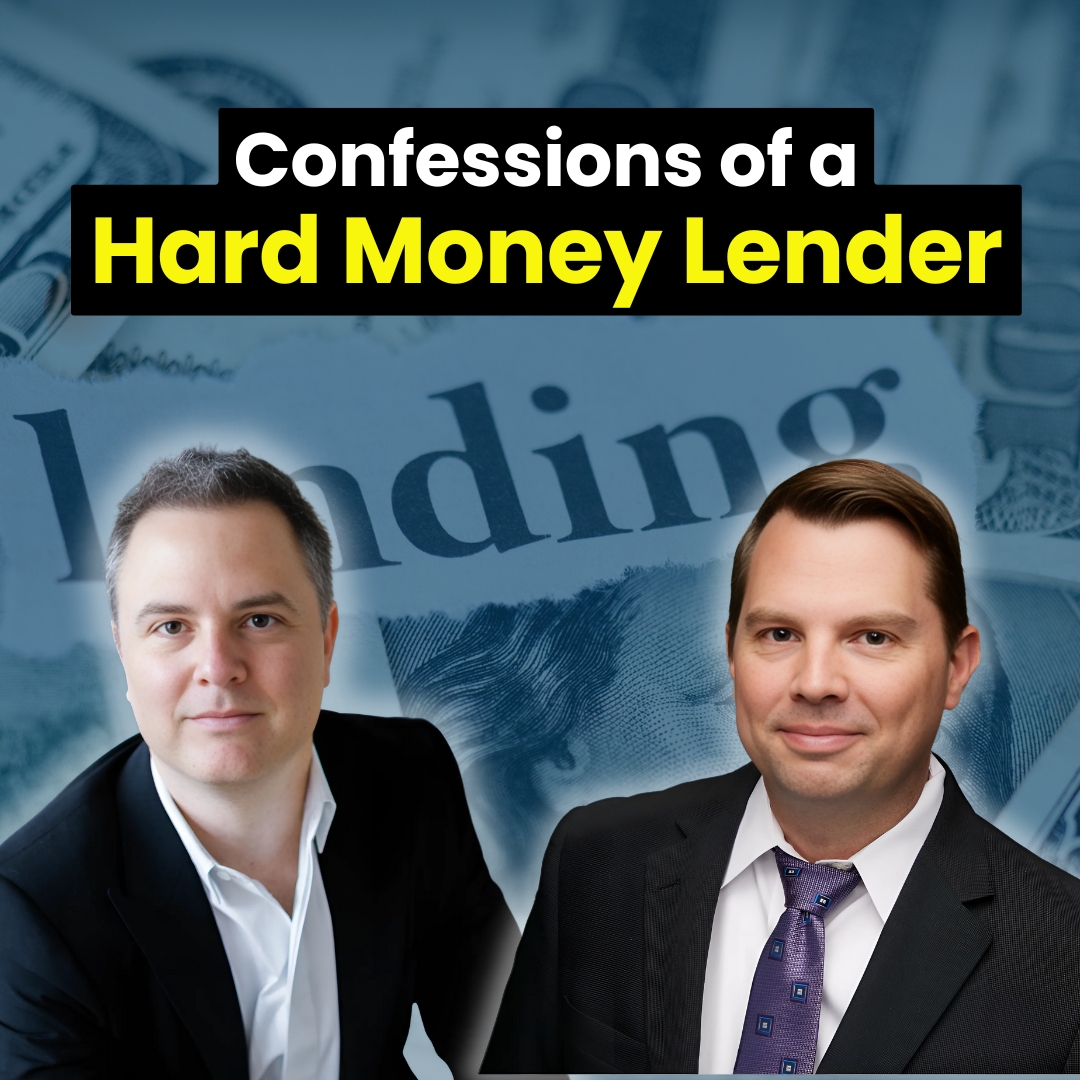Episode Transcript
[00:00:00] To a large extent, your tenants themselves are inside creditors because you have an agreement with them. You have a contract with them. It's called a lease. So that's a, that's an inside creditor. Something happens related to that asset leads to a lawsuit, which can lead to a judgment, which then makes them a creditor and they're inside. So that asset is at stake of being taken to sell, satisfy inside creditors.
[00:00:47] Hello, everybody. Good morning, good afternoon, good evening, good night, wherever it is in your day. I want to welcome everybody back to another ask Joe session of the trust, this podcast. And today I want to talk about asset protection, because I get these questions a lot about protecting my assets in Florida, whether it's real property I'm trying to protect, or my cars or my homestead investment accounts, whatever it may be. And there's some basic concepts that I always find myself explaining to people before we can ever get into the depths of their particular situation to protect their assets, depending on what they are and where they are. So let's get at it.
[00:01:40] First, I want to just point out homestead. If you have your primary residence in the state of Florida, it's less than 160 acres, and you live outside of city limits, or it's less than a half acre, and you live inside city limits, you've got your homestead protection. So that's your primary residence. And that's a very, very big protection right there that I tell people to definitely make sure that they have their, their homestead protections in place and, and always have your homestead protected, and, and watch out for that. So that's a big one. But a lot of people go, well, what about other assets other than my homestead? So, at that point, we have to start talking about other issues that we have to get at.
[00:02:24] So one of the first things I ever want to talk about when I'm talking about asset protection is the difference between inside creditors and outside creditors. So let's say you have a rental home and maybe you have a fourplex. You have a fourplex out there. So you've got four tenants living in four of the units in this fourplex down by the beach.
[00:02:48] And you've got to worry about guests of the tenants. You've got to worry about what the tenants themselves are doing. I can tell you some horror stories. We've had tenants who have parties where people bring guns and they shoot accidentally through the wall and hit children sleeping in the bedroom next door, in the unit next door.
[00:03:13] We've had, of course, dog bite cases, slips and falls, drownings in the pools. We've seen all of that. So there is a lot of liability around owning a duplex or any kind of a rental property. So I'm going to explain the difference, though, between an inside creditor and an outside creditor on this duplex. So an inside creditor would be, let's say that you go and you borrow money, you take out a mortgage to buy this property, and this property is held in your LLC or it's held in a land trust. And the LLC or the land trust signs the note, they sign the mortgage to put this property in security for the lender. Your lender is what we would call an inside creditor. Because they are inside the house. You have granted them voluntarily a lien on this property. Another inside creditor may be that a contractor you have contracted with to do major work or renovations at the property, and then you get into an argument over payment and work, and they didn't do a good enough job, you didn't like it. And so they file a lien against the property for non payment and they threaten to foreclose. They too would be an I inside creditor.
[00:04:37] To a large extent, your tenants themselves are inside creditors because you have an agreement with them. You have a contract with them. It's called a lease. Just like you have a mortgage with your lender, you have a contractor's contract with your general contractor, you have a lease with your tenant. These are all inside inside creditors because they have all entered into a contract. They have what's called privity of contract with the owner of this property. So they can sue the owner just flat out sue the owner because they're an inside creditor. A guest who happens to come to the property and they slip and fall going up the stairs to that upstairs unit because you haven't pressure washed the steps and mold has built up on them and they're very slick and you owed a duty to them as the landlord. They now become an inside creditor because they were injured at the property. So that's a, that's an inside creditor somewhat. Something happens related to that asset leads to a lawsuit, which can lead to a judgment, which then makes them a creditor and they're inside. So that asset at stake of being taken to satisfy inside creditors, very hard to protect against inside creditors.
[00:06:01] Insurance is a great way to do it. Of course, you carry liability insurance. You may have a business premises owner's umbrella policy that then covers above any liability limits that aren't covered by that. You may have tenant discrimination liability insurance that you carry as a separate policy to ensure that if you happen to get a claim that you have discriminated against a tenant, either in making the lease to them or in not making the lease to them, that you have this and that it is an issue that you have insurance for to make sure that you're covered for that, and that you have an insurance policy that's going to cover not only potential losses, whatever the lawsuit judgment may be, but also to cover the legal fees for the lawyers to fight the case. So those are all inside creditors. Now, let's talk about outside creditors. So let's say that you own this property in an LLC where you are the member of the LLC, or you own it in a land trust where you are the beneficiary. The land trust.
[00:07:16] Now, you personally, you sign a contract for a copier at your office, and you sign it individually, stupidly, you just screw up and you sign it John Smith. I agree. I'm going to pay back this copier lease. And the copier lease is $100,000 over the next four years. So it works out to be, you know, $25,000 a year, roughly.
[00:07:42] And you've got this hanging over your head, this sort of damocles.
[00:07:48] And you get to a point where it's like, well, I can't keep paying this copier lease. So the copier company sues you. They sue you individually because you individually signed this copier lease, agreeing to pay them $25,000 a year for this Mac daddy copier that you had in your office, in your business.
[00:08:08] So now they have a judgment. Maybe there were two years left. So they have this judgment of $50,000 against you. So they start searching around. Okay, well, what are we going to take, what are we going to take from John Smith to satisfy our 50,000? Ah, there's his house up. It's a homestead in Florida. We can't touch that. Okay, well, let's look up his name on Sunbiz. Ah, we see he owns an LLC, or he's. His name is listed with this LLC, so he must own it because he's listed as a member manager. So let's go ahead and see what this LLC owns. Oh, it looks like this LLC owns this duplex over here. And we don't know, you know, if there's a mortgage on it. We look. Oh, there's no mortgage on it. Okay, so the LLC owns it, and it only shows John Smith's name on Sunbiz. So as an outside creditor. Let's go.
[00:09:04] And we will go through court and we will basically seize or foreclose John's membership interest, his sole membership interest in the LLC, so that now we own the LLC. So we own everything the LLC owns. The LLC owns this fourplex. Let's sell the fourplex. Lo and behold, now we have much more than $50,000. We have plenty of money to pay ourselves back. What, for this copier that John had signed for. So the copier company is an outside creditor that can now come in, and they would take the LLC because it's a single member LLC. We'll get to that in a minute. And then they own anything that the LLC owns.
[00:09:46] Now, let's assume instead that the property, that fourplex, that duplex, whatever it may be, is owned in a land trust with a third party trustee. So they get the judgment against John Smith, and they go out and they go, okay, well, now let's see what John Smith owns. They search John Smith's name. They see he owns an LLC, but they look and they can't find anything the LLC owns. So they're like, okay, well, nothing there. Let's not bother with that.
[00:10:12] Let's search the public records for any real estate John Smith may own. Unfortunately, John Smith will be a very common name, but let's assume it's not a common name. So they search for everything that John Smith may own, and they find nothing because a third party trustee holds the title to that fourplex that John owns as the beneficiary. So they look at John, they're like, well, John doesn't really have anything, so we're just going to let this judgment sit out there, and every few years, we're going to just sort of poke him with some discovery or make his life a little difficult every once in a while, a little inconvenient. But after ten years, the judgment's going to expire, and if we don't renew it, it just goes away anyway, which happens quite often. So in that case, John is off Scot free.
[00:11:00] Now, let's assume that John is acting as his own trustee of his trust. They search his name on the public records. They find out. It's like, oh, John owns this as trustee.
[00:11:09] Well, he owns it as trustee. But maybe we can poke around there and use this as a threat and try to get into his business a little bit deeper so that we work out a settlement that he'll pay us at least most of the 50,000, or he'll find the money some way, somehow, to keep us from digging deeper into his business to find out what else he may own out there. So that's another, another issue with an outside creditor is they can go digging around a lot, and depending on the size of the judgment, we typically find at $500,000. And up on the judgment, they will start really digging hard with asset investigators and other people looking to see if they can find more assets that you have. But again, if it's in a land trust and there's a third party trustee that's a trustee of it, they're going to search John's name. They're not going to find anything. So they're probably just going to go, eh, never mind. Don't worry about it. Even though John may just have that fourplex and ten other properties in ten other land trusts, they'll never see it, they won't know it unless they really, really, really start digging in through post judgment collections. At that point, you hope John has his membership interest held in an LLC. But this brings me to my next point. So we've got inside creditors, outside creditors, but we also have to worry about how many members you have in your LLC. Because if John only has one member in his LLC, an outside creditor or an inside creditor, anybody who has sued John can simply take the membership interest in that LLC away from John. And now they own everything that that LLC owns. And a lot of people go, but wait, wait, wait. I'll form my LLC in Wyoming or Nevada or Delaware or one of these other anonymous states where no one will ever see who the true owner is, and they have charging order protection for single member llcs. So let's talk about what a charging order is. A charging order is in Florida and many other states, if you have more than one member of an LLC, so you have two or more members of an LLC, regardless of their percentage, although we usually like to see the other member having at least 5% or more, and that other member does or does not receive money, they or they are not entitled to distributions from the LLC as it receives money. That doesn't matter. But as long as there is another member of the LLC, the only thing that that judgment creditor can get against John would be a what's called a charging order. So that means that if the LLC ever is going to distribute money to John, instead of distributing that money to John, it will instead distribute the money to the judgment creditor to pay down the judgment that they are owed. So you always want to try to have more than one member of your LLC. But coming back to the states like Wyoming, where Wyoming says, hey, even if you've only got one member, we don't care. They can only get a charging order. You can't do it. The problem is John lives in Florida and Florida does not recognize single member LLC protections by charging order.
[00:14:48] So a judge is going to look at it and go, well, yeah, that's really sweet and nice, but the judgment is entered here in Florida. John, you live here in Florida. All the acts happened here in Florida. So I don't care that the company that you own is in Wyoming and that it has charging order protection for a single member LLC.
[00:15:10] I am still going to let this creditor take this membership interest. So that's why we love multi member llcs.
[00:15:21] So how do you get a multi member LLC and what if you don't trust, what if you just don't trust anybody else to be another member with you? It's fine because you can form, you can form other llcs with other people that are multi member llcs but that don't have a monetary distribution interest in your main LLC. So this other LLC could own 5% of your main LLC and it's a multi member. Now, that member LLC owns 5% of your main LLC. You own 95%, you're a monetary member, you're entitled to distributions and money. This 5%, they're only entitled to vote, they're not entitled to distributions. They are a non monetary member. So you don't have to, you know, worry so much because you have multi member protection under the, under your main LLC. Another thing that you can do, if you don't want to do another LLC, you could do irrevocable living trusts for children, for nieces and nephews, for grandchildren or other people that you want to leave money to when you die. And then that irrevocable living trust, that irrevocable trust becomes like a separate entity. And you can say, okay, well, it owns 5% or 10% or whatever of this LLC. So that a couple of things happen there. Number one, when you die, that ll, that irrevocable trust already owns a piece of that LLC and it can appoint a new manager of the LLC upon your death to keep things rolling and wind up the affair. So that then it takes the money.
[00:17:10] But you've also created another member. So you get charging order protections, again, doing it that way because you have a second member of your LLC. So that's two ways to set up a multi member LLC. To create another member, you create them out of thin air, either with another multi member, non Monetary LLC, or you set up an irrevocable living trust as your other member, and that can work that way too. But in any event, you are assured that as long as you have more than one member in the LLC, if an outside creditor sues you and you are the member of this LLC, the only thing that they are going to get is a charging order so that if any money is ever to be paid to you from that LLC, they get it. But they don't actually own the LLC, and they don't own the assets that the LLC owns.
[00:18:02] Thanks for listening to this edition of trust this if you got something out of it, please press like and subscribe and give us a five star review to help us reach others who can benefit from this series. Until next time, keep aspiring to a better life.


